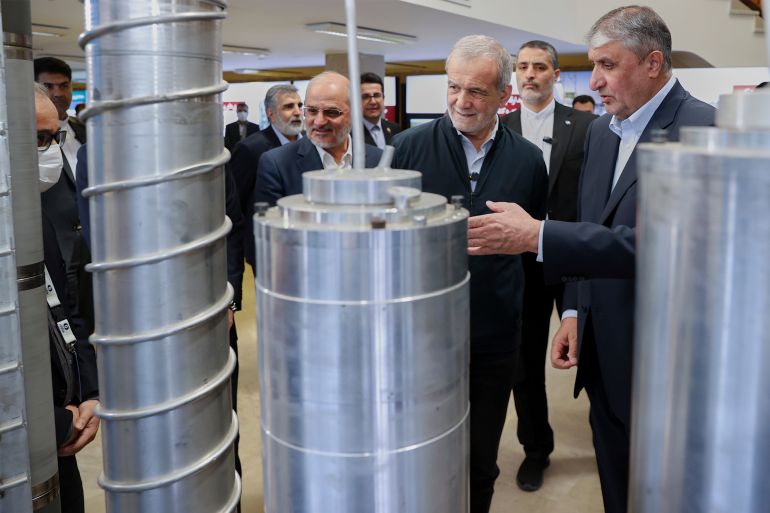Iran warns it could expel UN nuclear inspectors ahead of US talks
The United States and Iran are set for talks on Iran’s nuclear programme in Oman on Saturday.

Published On 10 Apr 202510 Apr 2025
Iran has warned that it could expel UN nuclear watchdog inspectors from the country in response to “external threats” as US Secretary of State Marco Rubio said the United States and Iran will hold direct talks in Oman on Saturday to discuss Iran’s nuclear programme.
Relations between the two nations have been tense since US President Donald Trump said in February he was re-imposing a “maximum pressure” campaign.
On Wednesday, Trump said military action was “absolutely” possible against Iran if talks between Iranian Foreign Minister Abbas Araghchi and US Middle East envoy Steve Witkoff end without a deal.
“Israel will obviously be very much involved in that, be the leader of that [military action],” Trump added.
Iran has consistently denied seeking to acquire nuclear weapons.
On Thursday, a senior adviser to Iran’s supreme leader, Ayatollah Ali Khamenei, warned that Tehran could expel UN nuclear watchdog inspectors in response to “external threats”.
“The continuation of external threats and Iran being in a state of military attack may lead to deterrent measures, including expulsion of inspectors from the International Atomic Energy Agency and cessation of cooperation,” Rear Admiral Ali Shamkhani said on the social media platform X.
Advertisement
“Transfer of enriched materials to secure locations may also be considered,” he added, referring to the country’s uranium enrichment.
In Washington, State Department spokesperson Tammy Bruce warned Iran against making a misstep.
“The threat of that kind of action, of course, is inconsistent with Iran’s claims of a peaceful nuclear programme,” she told reporters.
“Also, expelling IAEA inspectors from Iran would be an escalation and a miscalculation on Iran’s part.”
“Right now, this is a meeting that is arranged. It is not part of some larger scheme or framework. It is a meeting to determine whether or not the Iranians are serious,” Bruce added.
The US has, this week, also announced new sanctions targeting Iran’s nuclear programme and its oil network.
In 2015, Iran reached a landmark nuclear deal with major powers that gave it relief from international sanctions in return for restrictions on its nuclear activities monitored by UN inspectors.
But in 2018, during Trump’s first term in office, the United States withdrew from the agreement and reinstated biting sanctions on Iran.
A year later, Iran began rolling back on its commitments under the agreement and accelerated its nuclear programme.
Currently, the country maintains that it is against direct negotiations with its rival, the US, but has left the door open for indirect talks.
Rubio, however, voiced hope that the talks would lead to “peace”.
“We hope that will lead to peace,” Rubio told a meeting of Trump’s cabinet. “We’re hopeful about that.”
Advertisement
